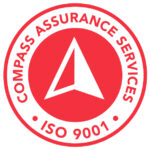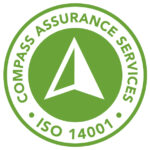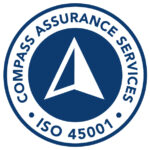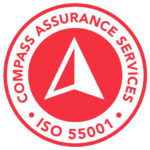Information to assist new and regular customers using our services.
Please click the link to the Summary of Rights and Obligations of Passengers (pdf) which is also posted on all buses.
Travelling by bus
- Plan your trip by visiting your local Buslines Operator Timetables web page or request a timetable from the bus driver or from your local Depot Office.
- Arrive at your bus stop at least 5 minutes before the scheduled departure
- Have your cash fare, and concession card if applicable, ready before the bus arrives
- You can identify the correct bus by checking the route number on the destination sign above the bus windscreen
- As the bus approaches, signal to the driver that you wish the bus to stop by raising your hand then stand back from the kerb
- Wait for others to alight the bus before boarding.
- Ask the driver to lower the bus if needed. This may not be possible on older buses.
- Priority seating is available at the front of each bus for customers who are older, have a disability, impaired mobility, or pregnant.
- Ensure luggage, bags and personal items are stowed correctly and not blocking the aisle.
- Where fitted on buses seatbelts must be worn.
- Remain seated, or if standing hold onto the handrails, at all times whilst the bus is moving.
- As the bus approaches your bus stop press the stop button near your seat, if you are vision impaired advise the driver on boarding the bus where you wish to alight.
- Check that you have all your belongings with you.
- Wait until the bus comes to a complete stop before moving to get off the bus.
Ticketing
You can purchase a ticket from the driver with cash. Please have the correct cash fare ready. If you wish to purchase a concession fare please have your concession card ready to show the driver. Fare and concession information can be found here Fares and Concessions.
For School Students who have a Buslines Travel Pass you must show your travel pass to the driver when boarding the bus.
Accessible Bus Travel
You can plan an accessible trip by looking for a wheelchair symbol on our bus timetable. These trips will be operated by low entry, easy access wheelchair friendly buses. Occasionally, due to maintenance, a service may be non-wheelchair accessible for short periods. Please call our office to check prior to your journey.
When travelling with a mobility aid, be sure to read through the required mobility aid specifications for more information https://transportnsw.info/travel-info/using-public-transport/accessible-travel/mobility-aid-specifications
Bicycles or Scooters
Bicycles cannot be taken on buses because they are difficult to stow without inconveniencing or potentially endangering other passengers.
Recreational scooters must be securely folded and stowed out of the aisle so as not to inconvenience or be a risk to other passengers and not prevent other passengers from getting a seat.
Travelling with prams and young children
It’s free to take a pram or stroller on public transport. Children aged three years and under travel free and don’t need a ticket. Children aged 4-15 (inclusive) pay child fares.
Accessible buses have access ramps and specific accessible areas for prams and wheelchairs near the front of the bus, which will allow children to remain in the pram while on board. You can request the use of an access ramp to be lowered to make boarding and exiting the bus easier. The bus driver will wait until you have boarded, the pram is secure, and you are safely seated before moving.
When securing your pram:
- Ensure you have the pram secured and children strapped in with the pram brake on.
- The front of the pram must be facing towards the back of the bus and be in firm contact with the panel or bar behind it.
- Remove all shopping, luggage or items that are hanging from the pram handles so the pram does not fall over. You can place them in the luggage rack, hold them or place them under your seat
Travelling with an assistance animal or pet
Assistance animals, such as a Guide Dog, are permitted on our buses at all times with a valid form of accepted accreditation. While assistance animals may travel free of charge on all our services, owners are still required to have a valid pass or ticket for travel.
Pets are allowed on bus services, with permission from the driver. The animal must be restrained in a suitable box, basket or other container at all times while onboard. While onboard, animals are not allowed on seats and must not obstruct passageways.
The driver can refuse to allow the animal to board:-
- if the bus service is reaching capacity
- if the animal is not clean or is likely to inconvenience other customers.
Lost Property
- Where property is marked with contact details like a telephone number, the owner shall be advised.
- Where an item can be identified as belonging to a student of a particular school, it shall be sent to the school if not claimed.
- Valuable lost property shall be securely stored.
- Details of enquiries about lost property shall be recorded and periodically compared with records of lost property. If the item has been found, the owner shall be contacted.
- Property found on our buses will be kept for there months before being donated to a local charity.
Safety and Security
Surveillance cameras operate on our bus services to monitor and deter anti-social behaviour or offences. If you need assistance, feel unsafe or threatened in a bus, speak to the bus driver. Call 000 in an emergency.
You can play a role in helping to keep our bus services and network safe by reporting anything suspicious as soon as possible. Speak to your driver if you see an unattended bag or package on a bus.
Customer Feedback
In order to help us improve the service we provide for you; we actively encourage feedback.
Customer suggestions, complaints and compliments can be made in person, by telephone, by email or via the Contacts page on our website. If a complaint is made in writing (email, web, or post) we will acknowledge receipt of complaints within 2 working days.
Generally, we aim to resolve complaints within 5 working days. Those complaints that require additional investigation may not be able to be resolved within this time frame, however, customers will be kept informed on the progress of their complaint.
It is helpful to include as much detail as possible when making a complaint, such as the date and time of travel and the bus registration number, where you were leaving from and going to, and a contact phone number in case we need more information. It is also helpful if you send your ticket with the complaint.
Student Code of Conduct when Travelling
The Student Code of Conduct exists to ensure you travel safely and show respect for others. Code of Conduct for School Students
Students must follow regulations when travelling between home and school using public transport. All students must behave in a manner that ensures both their comfort and safety and that of other passengers.
Disobeying these rules may lead to:
- the withdrawal of school travel passes
- suspension or ban from travel on public transport
- police prosecution and court action
Vandalism is a serious criminal offence. Students caught tagging, etching or vandalising property may face criminal charges



